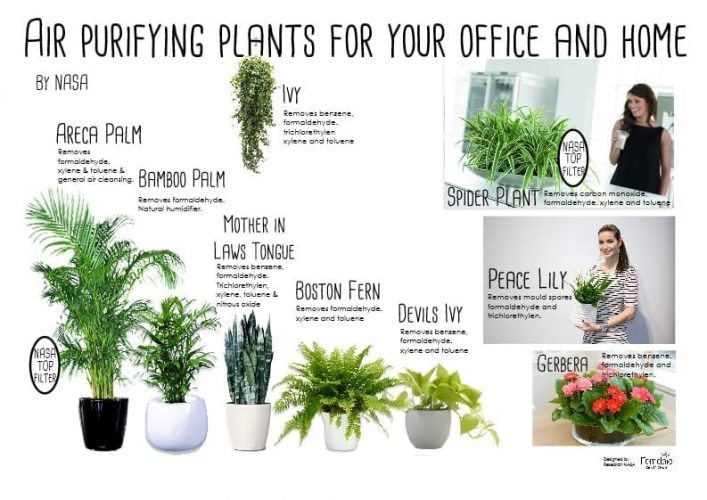
 …and now BBC2 ‘Trust me I’m a doctor’ recommends houseplants for taking the formaldyhyde type chemicals out of your home that are a byproduct of air fresheners.
…and now BBC2 ‘Trust me I’m a doctor’ recommends houseplants for taking the formaldyhyde type chemicals out of your home that are a byproduct of air fresheners.
Did you know that your everyday easy to care for plants had a space connection did you?
In the early 80s when NASA were researching space living they investigated whether they could take house plants into space to improve the atmosphere in the space station. They chose easily grown household plants and the results were stunning as you can see from the chart.
They are easy care on earth too in your home, office, school, church, or community building.
This range of plants is now in stock ready for you to refresh your home and improve your health.
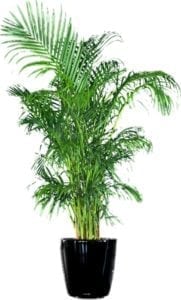 Care:
Care:
Watering Summer: moist not wet
Watering September-April: dryer between watering
Temperature: 15-21C
Light: Bright indirect light
Air Humidity: mist daily once your heating is on.
Feeding: Use a general house plants food in summer. No food in winter.
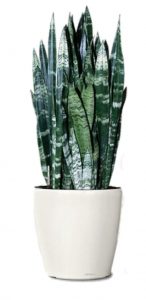
Care:
Watering Summer: water then allow to almost dry.
Watering September-April: keep quite dry
Temperature: 5-21C (keep very dry at lower temps.
Light :Bright direct light
Air Humidity: will love winter heating.
Feeding: Use a general house plants food in summer. No food in winter.
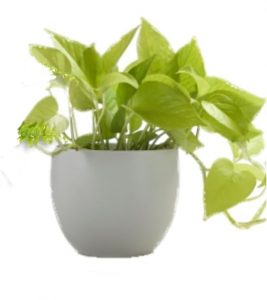
Care:
Watering Summer: moist not wet
Watering September-April: dryer between watering
Temperature: 5-21C
Light:Bright indirect light
Air Humidity: mist daily once your heating is on.
Feeding: Use a general house plants food in summer. No food in winter.
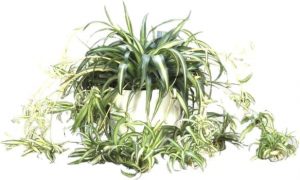
Care:
Watering Summer: moist not wet
Watering September-April: dryer between watering
Temperature: 12-21C
Light: Bright indirect light winter – shaded in summer
Air Humidity: mist daily once your heating is on.
Feeding: Use a general house plants food in summer. No food in winter.
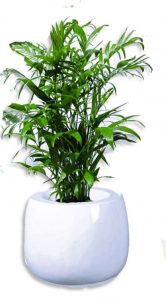
Care:
Watering Summer: moist not wet
Watering September-April: dryer between watering
Temperature: 15-21C
Light: Bright indirect light
Air Humidity: mist daily once your heating is on.
Feeding: Use a general house plants food in summer. No food in winter.
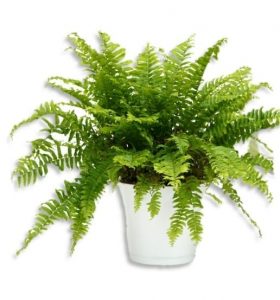
Care:
Watering Summer: moist not wet
Watering September-April: dryer between watering
Temperature: 12-21C
Light :Bright indirect light winter – shaded in summer
Air Humidity: mist daily once your heating is on.
Feeding: Use a general house plants food in summer. No food in winter.
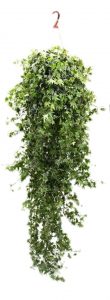
Care:
Watering Summer: moist not wet
Watering September-April: dryer between watering
Temperature: 5-21C
Light: Bright indirect light
Air Humidity: mist daily once your heating is on.
Feeding: Use a general house plants food in summer. No food in winter.
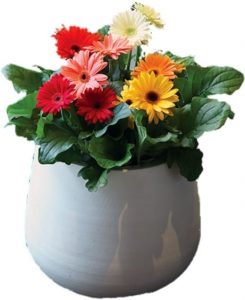
Care:
Watering Summer: water well once the top layer of compost is dry. Drain before placing on saucer or pot cover.
Watering September-April: water sparingly but don’t let them dry out.
Temperature: 12-21C
Light :Bright indirect light winter – shaded in summer
Air Humidity: mist daily once your heating is on.
Feeding: Use a high potash flowering food in summer. No food in winter.
The more the merrier, but 3 for 4 foliage plants will clean the air everyday for the life of the plants.
Plants draw air into the leaves through specialized cells called ‘stoma’ mostly on the underside of the leaves. Using daylight the plant extracts carbon dioxide from the air releasing oxygen in the process AND depositing the harmful gases within the plant removing them from the air.
Amazingly most of the man made chemicals that are released by modern products such as polymers, petroleum, cleaning fluids, artificial scent & paints are removed from air by these plants.
Plants also attract particles from the atmosphere. Outside plants will filter car emission particles and dust with them sticking to the leaves to be washed off by the rain. Indoor plants will do the same collecting harmful indoor particles.
Keep up to date with our latest news, offers and tips for gardening.